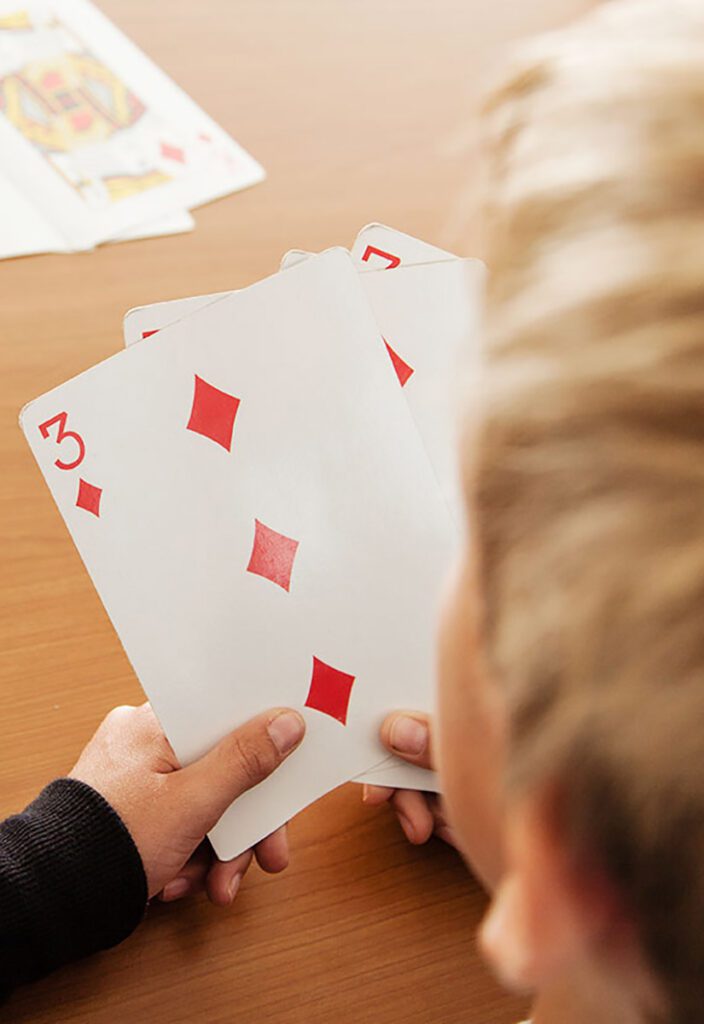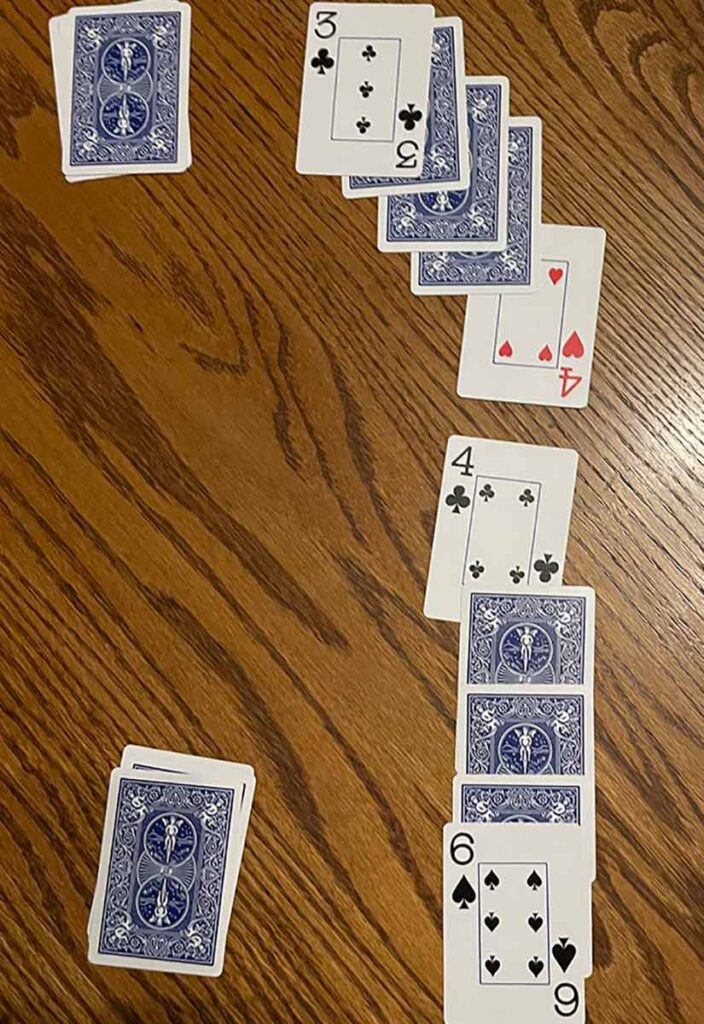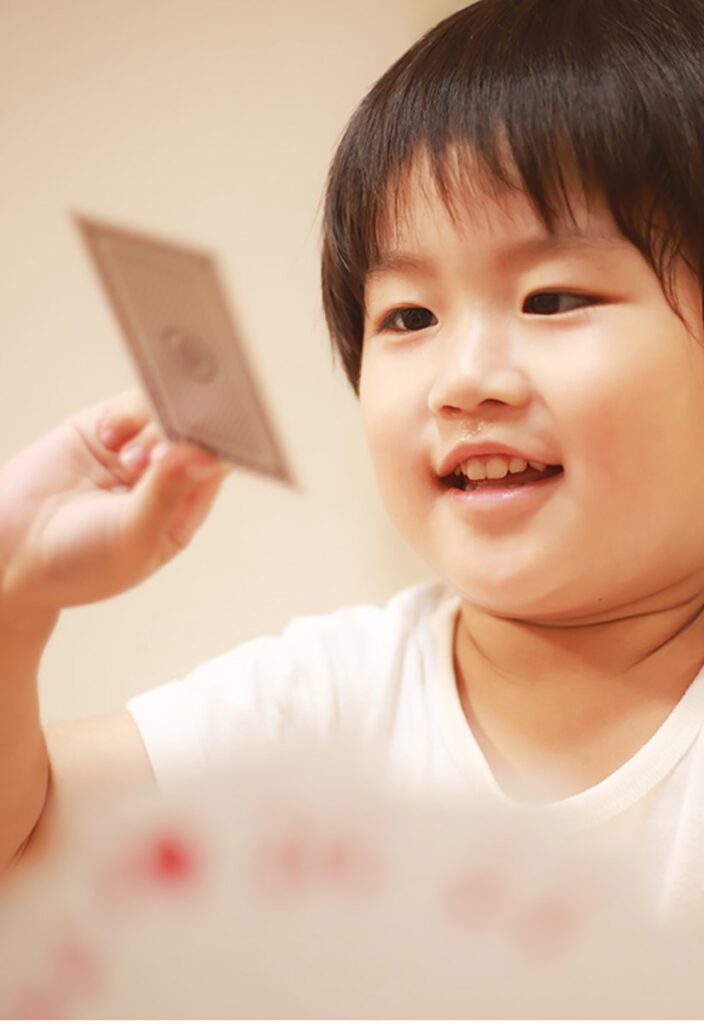More Than a Card Game
Introduction
Life isn't fair. Sometimes we win and sometimes we lose. If preschoolers have never lost a game, it's going to be a painful experience the first time that they lose in school. So let's get ahead of that trauma by teaching them how to play the classic card game, War. They'll learn how to win and lose quickly without a lot of drama and gain some early math skills in the process!

Gather Materials
- A deck of playing cards
Note: Small parts pose a choking hazard and are not appropriate for children age five or under. Be sure to choose lesson materials that you feel are safe for your child and that you are comfortable letting your child use.
Activity
Remember playing War as a child? It was the first card game that I learned. It was simple and fun and it taught me a lot about winning and losing.
When I play War with very young children, I often pull out the face cards and any card higher than a six. Depending on the ages and developmental stages of the players, I may even pull out the aces because it’s too difficult for young children to associate the letter “A” with the number “1.”
Start by dealing the cards evenly between all of the players, stacking the cards face down in front of each player. No peeking allowed! On the count of three, each player will flip the top card over into the center of the table, face up.
Compare the cards played. The highest card wins the hand. The winner takes all of the cards played and adds them to a new stack of “won” cards.
What happens when there's a tie between the two highest players? They engage in a “duel.”
To play a duel, the two players each place three cards face down in the middle of the table. Then they each lay down another card (the fifth card for this round). This card should be facing up. The highest card wins, and the winner takes all of the cards from this round and adds them to a new stack.
Play until your main stack is gone and then count how many cards the players have in their stacks of “won” cards. The player with the most cards wins!
Once the children have mastered the cards through the number six, I will add the sevens and eights back into the deck. Later, I will add in the nines and the tens.
So where's the math?
As children play War, they build these foundational math skills:
- Number Recognition: Recognizing numbers in print
- Comparing Quantities: Understanding the concept of more, less and the same
- Cardinality: Recognizing that the last number that they say out loud when counting the "diamonds" on a card represents the total number of diamonds in the group
- Subitizing: The ability to recognize “how many” in a set without counting each "diamond" individually
Children also learn important life skills such as:
- Following rules
- Taking turns
- Patiently awaiting their turn
- Taking their turn quickly, without making others wait too long
You'll have plenty of opportunities to observe children's number sense as the game unfolds. Can they identify the numbers by name? Can they determine which number is higher? Do they understand that a five-card has five diamonds, five hearts, five spades or five clubs? When the cards match, can they count out the three additional cards that they will need for a duel?
You'll also be able to assess non-math-related skills. Can they follow the directions? Take turns? Win and lose without getting dysregulated?
I love War because it’s a game of chance and everyone has an equal chance of winning. Because each round has a winner, we are practicing the win/lose concept over and over again in rapid succession. There isn’t time for the winners to jump up and do a victory dance or the losers to break down and get weepy. The same child will not win every round, which gives every child many opportunities to practice good sportsmanship.
That’s a lot of learning for a game that fits in your pocket!


